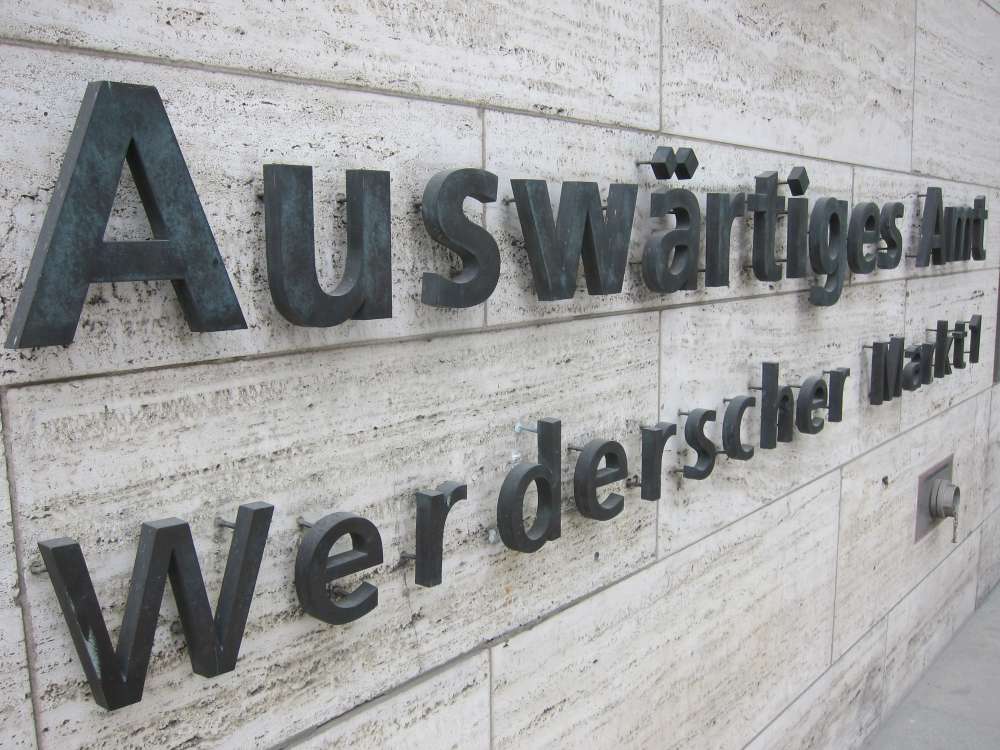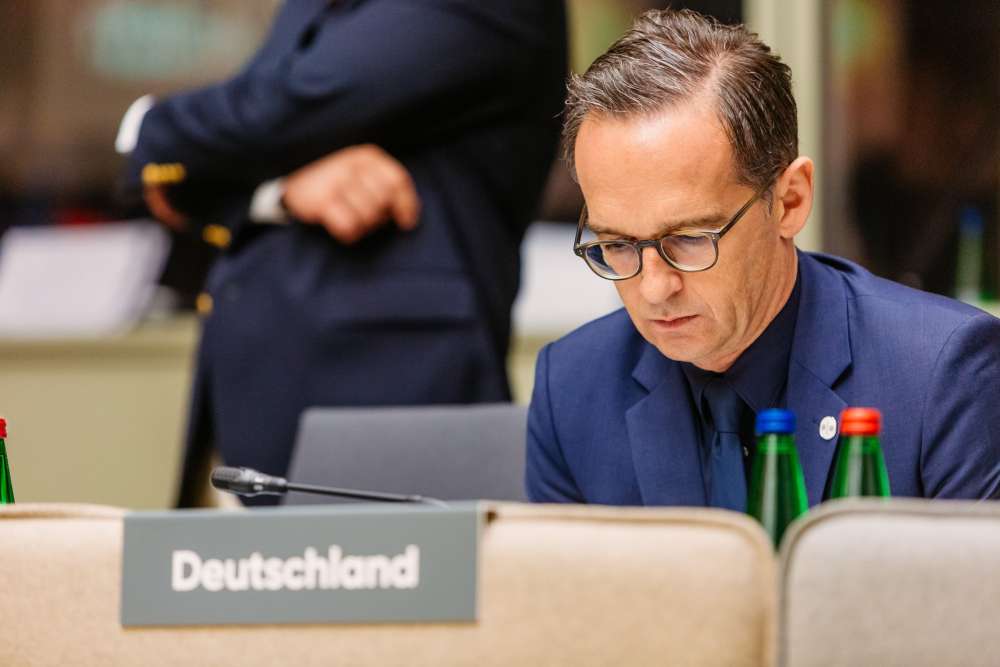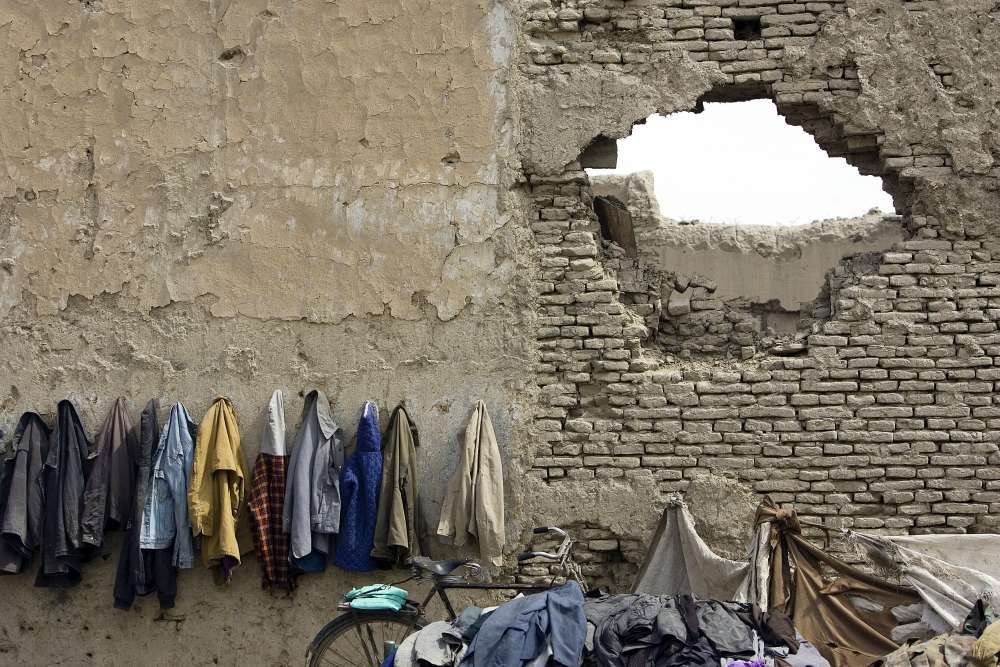The German Foreign Office at 150: Time to Shake Things Up

This year, the German Foreign Office celebrates its 150th anniversary. Festivities for the milestone will be muted: those 150 years include several decades of colonial rule and the ministry’s complicity in the crimes of the National Socialists. To avoid the association, the ministry could have elected to wait a year and commemorate the 70th anniversary of the Foreign Office’s re-founding after World War II – but instead, German Foreign Minister Heiko Maas decided to celebrate the 150th anniversary with a host of events. “If we want to build the Foreign Office of the future, then we cannot avoid taking a critical look at our past,” the minister said. And in a speech in January 2020, State Minister Niels Annen announced the anniversary as a chance to discuss how to best reform the Foreign Office, including its internal culture.
Such a debate is long overdue. From US President Donald Trump’s threats of tariffs on cars imported from Germany to the conflicts in the Middle East and the ongoing coronavirus pandemic – rarely has it been so evident how vulnerable Germany is as a result of its economic and societal interdependencies. The days when Germany could follow the suggestions of Washington, London or Paris are over; new ideas and foreign policy strategies must now also come from Berlin.
In recent years, German foreign policy has repeatedly appeared to gain momentum – through Berlin’s engagement in Afghanistan, during the Arab Spring, at the 2014 Munich Security Conference, with its leading role as a negotiator in the Ukraine conflict, and most recently at the Libya Conference in Berlin. Yet time and again, German foreign policy ultimately loses that steam again. The reasons for the stagnation include a lack in leadership from German Chancellor Angela Merkel and a governing Grand Coalition whose parties disagree on fundamental questions of foreign policy. But another important factor behind Germany’s hesitance rests in the place where German foreign policy is originally made: the Foreign Office.
For a more active foreign policy, the German foreign ministry would need to unite the expertise of all German ministries and the 227 German missions abroad in a way that enables the creation of something that is bigger than the mere sum of many individual policies. To do so would mean promoting strategic thinking, initiatives and networks, and acting as a diplomatic service that can provide Germany with the necessary diplomatic capacities to lead – not just on topics like Ukraine and Libya, but also on Syria, the Sahel and future crises. To be a leader in foreign policy, the ministry would have to simultaneously equip itself to keep Europe together and strengthen its expertise on China to fight for European values and interests within the EU.
It is precisely this capacity and strategic thinking that the German Foreign Office currently lacks. To change its course, the foreign ministry needs to implement far-reaching reforms in-house – including changes to its policies on diplomatic careers, its internal bureaucratic culture, IT equipment, knowledge management and communication practices, working conditions, and personnel.
A Change in Culture: Promoting Expertise, Ideas and Initiatives
A “responsible approach to our history” also means “creat[ing] an in‑house culture fit for our century,” German State Minister Annen said in his speech in honor of the Foreign Office’s 150th anniversary. What that would require, he added, was team spirit rather than authoritarian hierarchy, collegiality rather than knowledge as a power base, and … feminism rather than patriarchy.” To allow for internal change, he said, the Foreign Office needs “the desk officer who reports frankly and without glossing anything over … and thus rouses up those in positions of responsibility in Berlin” and diplomats who do not only point to successes, but also admit mistakes. These are exactly the right signals for the ministry’s leadership to be sending – but such speeches should also be followed by concrete proposals. At present, hardly any incentives that encourage disagreement, owning one’s mistakes or creative thinking exist inside the Foreign Office. Here are some ideas for fixing that.
First, the Foreign Office should change how it plans the careers of its diplomats. To do so, it must relinquish the tired notion that all diplomats should be generalists capable of rotating to new posts at the drop of a hat. The ministry should allow diplomats to specialize in specific topics or regions over the course of their careers. This would strengthen urgently needed regional and language expertise and create opportunities for diplomats to systematically acquire specialist know-how about more complex topics. It would also make it advantageous to develop networks in these regions and on certain topics over time. Psychologically, the chance to have a bigger say in the direction of one’s own career could alleviate some of the enormous frustration caused by the limited room for promotion within the ministry. If you can identify with your work and gain appreciation for your expertise, your pay grade does not need to be the sole marker of success.
In practice, many German diplomats are already allowed to specialize. Some diplomats rotate exclusively between Brussels, the Europe division of the Foreign Ministry in Berlin, and other European capitals, while others work continually on issues pertaining to countries affected by conflict. Still, many diplomats complain that the current system is arbitrary and opaque. Which brings us to the second point: the Foreign Office should hire professional human resources staff for its personnel division. In contrast to the current system, where professional diplomats run personnel divisions despite rotating out of them every few years, a professional HR department could ensure proper staff development, provide support in career planning, invest in the individual strengths of employees, and offer urgently needed support and training in leadership skills and personnel management.
Third, if the Foreign Office wants to start encouraging personal initiative and become more politically adept, it has to start at the top. The way the German Foreign Office makes decisions at present is neither very political nor strategic. In the current system, proposals that make their way to a state secretary or minister are prepared based on consensus. The political decision-makers ultimately receive a single “institutional” opinion – usually the lowest common denominator. It would be an important signal that there is a willingness to reform the in-house culture of the Foreign Office if future ministers and state secretaries were to call for several opinions or options for a decision, as is standard practice in countries like France and the United Kingdom.
Fourth, there are numerous ways to facilitate the transition from a hierarchical culture to one of constructive debate that rewards creative thinking. For a start, the ministry could set up “dissent” channels, such as those used by the US State Department to allow employees to anonymously express dissenting views on substantive foreign policy issues if the normal channels have been exhausted. The state secretaries could also host competitions in which teams of desk officers present cross-departmental ideas and projects. The diplomats could regularly hold “failure labs” in which they can share and discuss moments where they have missed the mark. Last but not least, there should be an evaluation system that rewards department heads when their teams have generated a particularly large number of new ideas as well as a culture of feedback and management that provides incentives for creativity, teamwork and information sharing.
Modern Knowledge Management, IT Equipment and Communications
Speaking of sharing information: it’s high time for the Foreign Office to digitize its filing system and knowledge management processes. The ministry has already taken some first steps – an electronic file system is supposed to be introduced in the coming years and the ministry is testing a “sharepoint” system to allow for simultaneous work on documents. But even ignoring the fact that these reforms have progressed at a snail’s pace, they do not go far enough. It should, for instance, be possible to quickly access relevant in-house knowledge digitally or gain an overview of external expertise on a topic without getting lost in a tangle of slow hard drives, old intranet sites and paper trails.
The ministry should finally demand more funding for proper – and secure – IT equipment, more and better paid IT staff, and smarter digitalization strategies. And if that sounds too pricy: consider for a moment the price of desk officers spending a considerable chunk of their workday using an outdated version of Microsoft Word to consolidate comments sent via huge email lists from 25 different locations worldwide. Imagine the costs for a ministry whose staff has been rotating every few years for decades but does not have a systematic knowledge management system.
Better IT equipment is also missing from the ministry’s communication strategy. In times of social media and disinformation campaigns, a modern foreign ministry must take communications seriously. Only then can it to stand up for liberal and democratic narratives. The appointment of a director for strategic communications a few years ago was a sign of progress. However, the strategic communications unit is housed within the culture division instead of being at the ministry’s leadership level alongside the press office, where strategic communications could be planned and implemented across the entire ministry.
The Foreign Office also lacks sufficient resources, equipment and staff dedicated to communications. And so far, the ministry has shied away from allowing anyone other than senior level staff on their social media. Lastly, the Foreign Office should expand its capacity for dialogue with citizens across Germany. This would not only allow diplomats to better explain German foreign policy, but also put them into more regular contact with the population they represent abroad.
Adequate Staffing and Personnel Reserves
In 2018, the Green Party’s faction in the Bundestag asked the German government whether the Foreign Office was adequately staffed. In its diplomatic way, the government gave an answer: no. Across party lines, there is a consensus that the Foreign Office lacks a sufficiently big workforce. Even the liberal Free Democratic Party – otherwise known for wanting to trim government bureaucracies – has criticized the government for understaffing the foreign ministry.
Although the ministry’s budget has grown by 100 percent between 2010 and 2020 – from just under 3 billion to almost 6 billion Euro – the number of diplomats has increased by only 9 percent, from 6824 to 7450 over the same period. Without enough posts to sensibly manage project funds, which have been rising for years in humanitarian aid and stabilization, the Foreign Office has hired hundreds of temporary staff members. Most of these employees are required to leave after a maximum of two years – around the same time they become fully acquainted with their work.
According to the German Foreign Service Act, the law that outlines the ministry’s tasks, the Foreign Office is supposed to maintain a personnel reserve that allows it to flexibly deploy diplomats, to train them appropriately on short notice, and to ensure comprehensive handovers. More than a decade ago, the German government promised to aim for a reserve of 8 percent – however, in 2018 the reserve was at 1.7 percent of the total number of posts. In practice, this means that preparation work for postings, handovers and further trainings is extremely limited. Even more importantly, this results in an inability to strengthen diplomatic missions or units on short notice. Many units and embassies are not adequately staffed for the work they are tasked to do. This inadequacy is particularly evident in the ‘portfolios’ that are most relevant to German foreign policy. The reality is one of overworked diplomats writing an ever-increasing number of memos, sitting in an ever-increasing number of meetings, and answering a growing number of questions from the Bundestag, all while accruing countless hours of overtime. In practice, embassies are often understaffed precisely where Germany has the greatest interest in contributing to peace and stability – such as in Mali or Iraq.
In recent years, the ministry has responded – albeit slowly – to the issue of understaffing by applying for a few more posts during budget negotiations every year. As a result, the ‘crews’ of newly hired diplomats-in-training have grown from 30 to 70 diplomats per year. Moreover, training has been shortened to one year and now includes phases of working directly for units in the Foreign Office. In 2019, the German government announced a new agency, the Federal Office for Foreign Affairs (BfAA), which will be tasked to take over the management of project funds and visa applications.
Overall, however, these reforms are neither comprehensive nor radical enough. It is difficult to say how many additional staff members the ministry needs – and whether more diplomats would still be necessary after a set of thorough reforms. To eliminate the current bottlenecks, the ministry – with the support of the Bundestag – would have to at least fill the personnel reserve and the existing posts, several hundred of which are currently empty. As it simultaneously plans for the new BfAA agency and enacts the above-mentioned reforms, the Foreign Office would also need comprehensive discussions on its personnel roster. This would account for redundant positions and efficiently redeploy existing staff. To implement better models for temporary contracts and lateral entries, ministry leaders should also engage in further discussions. In terms of engagement outside of the ministry, there should be more exchange with academia and the private sector, more systematic career exchanges with other EU member states, and a stronger division of labor with other EU countries.
Attracting the Top Candidates
Finally, the big question is how the Foreign Office can attract top talent going forward. The number of applications for the foreign service has remained consistent in recent years, but only because the age limit for applicants was abolished a few years ago. For many qualified job seekers, particularly those from younger generations, a decent work-life balance is a higher priority than it used to be. To become more attractive as an employer, the Foreign Office would therefore have to make real progress in reconciling the idea of having a family with a career in the diplomatic service. In recent years, the ministry has taken steps in the right direction by instating home office options as well as flexible working hours and slightly improved career prospects for partners of diplomats. Still, many diplomats feel that the system is designed to benefit those whose family model would fit into the 1950s. Diplomats who are not married, have partners who want to work, or are single parents have a much harder time doing their job than their colleagues.
If the ministry’s leadership is serious about the call for “feminism rather than patriarchy,” it will also have to make a greater effort to increase the diversity of its workforce. If the original founder of the ministry, Otto von Bismarck, were to walk past the ancestral galleries of the Foreign Office in Berlin or most of its embassies today, he would see no great cause for concern – most of the faces looking back at him would resemble him. Women as well as people with a migration or working-class background are seriously underrepresented in the current diplomatic corps. Even the way new diplomats are selected – based on the scores they achieved in a lengthy and cumbersome general knowledge test – favors a very particular section of the educated middle class. Recent years have brought some progress on this as significantly more women have been promoted. Moreover, the current trainee cohort consists of just over 50 percent women. However, according to the German Statistical Office, the Foreign Office is the German federal ministry with the lowest proportion of women in executive positions, with just under 20 percent. On this front, there is a lot of work left to do – when you only engage a small portion of the population, you only get a fragment of the ideas, creativity, teamwork, and performance.
Sending an International Signal
Foreign Office reforms alone will not be enough to transform Germany from a country that follows the foreign policy of others into one that leads and proposes initiatives on important issues. However, an adequately equipped and modernized foreign ministry is a necessary precondition for real progress. This year’s 150th anniversary provides an opportunity to discuss and tackle these overdue reforms. This will not be an easy project. Changing such a large bureaucracy requires an enormous amount of political leadership spanning the course of many years – which has been lacking up until now. But there is a cross-party consensus that the Foreign Office needs to be better positioned, both in terms of its ability to shape foreign policy as well as broader support from the German public for a stronger diplomatic engagement. To make this possible, the Bundestag must also demand these reforms and support them with sufficient funds. The foreign and security policy community in Berlin should do its part in asking whether the foreign ministry is actually fit for “more responsibility” on a very practical level. With the combination of more pressure, courage and political leadership, these reforms are more than just achievable. And they would send an important signal to Berlin’s international partners that Germany does not only talk about “diplomatic solutions” – it does everything it can to develop and implement them.
This commentary was originally published in German in the March/April 2020 edition of “Internationale Politik” and is available here.







